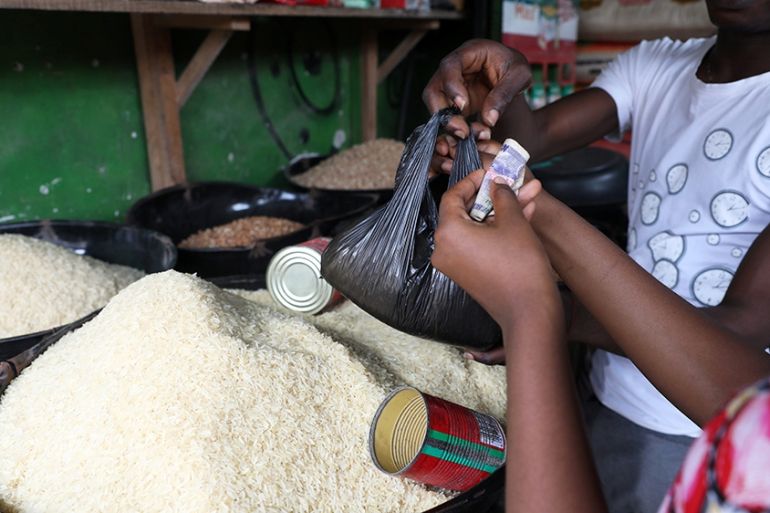Nigeria’s land borders closed to all goods, official confirms
Ban since summer on goods imported via land borders has pushed up food prices and pummeled neighbouring Benin’s economy.

Nigeria has closed its land borders to all movement of goods and has no timeline for reopening them, the head of the nation’s customs agency said.
“All goods, for now, are banned from being exported or imported through our land borders and that is to ensure that we have total control over what comes in,” Hameed Ali, comptroller-general of the Nigerian Customs Service told reporters in Abuja this week.
Keep reading
list of 4 itemsBehind India’s Manipur conflict: A tale of drugs, armed groups and politics
China’s economy beats expectations, growing 5.3 percent in first quarter
Inside the pressures facing Quebec’s billion-dollar maple syrup industry
President Muhammadu Buhari unexpectedly closed Nigeria’s borders to imported goods in August declaring the time had come to end rampant smuggling across the porous frontiers.
The closure has had a devastating effect on Benin, Nigeria’s neighbour to the west, which has been a key exporter of foodstuffs to Africa’s most populous country.
It has also pushed up prices for staples such as rice at markets around Nigeria.
Ali’s announcement this week was the first official confirmation of a total shutdown in trade across Nigeria’s land borders – including goods that had been moving legally.
“We are strategising on how best the goods can be handled when we eventually get to the point where this operation will relax for the influx of goods,” he said.
He did not give a timeline for any relaxation of the controls.
The closure does not affect Nigeria’s oil exports, which are exported almost entirely via the nation’s ports and offshore oil platforms.
Ali said that all imports should now come through the country’s ports where they can be monitored more easily and generate much-needed revenue.
Nigeria relies heavily on imports to feed its booming population of some 190 million, but the government is seeking to bolster domestic agriculture as it looks to diversify the oil-dependent economy.
Unilateral border closures go against all commercial and freedom of movement treaties signed under the Economic Community of West African States (ECOWAS).
The closure has also cast a shadow over a historic free-trade agreement, signed by 54 out of 55 African countries, that reached a key operational threshold in July.
Nigeria, as well as Benin, had signed onto the pact on the eve of the landmark day- a move hailed as a crucial push towards ending the continent’s trade barriers.